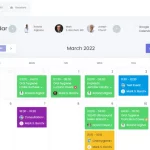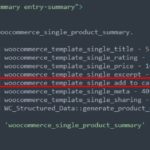Can you think of a better way to express your thoughts than through blogging? With WordPress, the world is your oyster. You can use it to write about anything that interests you. It’s an easy and fun way for anyone with access to the Internet to publish their thoughts on a blog. But before you start writing, there are some things you need to keep in mind:

Table of Contents
Is this topic too broad or narrow?
If you have a specific blog topic in mind, then it’s best to research the target audience that would be interested in reading your posts. For instance, if you are a blogger who writes about parenting tips for baby boomers or advice on early childhood education and development; these topics will not interest everyone who visits WordPress so make sure you’ve selected a broad enough topic.
You should also check your competition to see what topics they are covering, how often they post, how many views they are getting and what their blog’s focus is.
Doing your research at this stage will help you determine whether the topic is too broad or narrow for WordPress, which can lead to a lack of readership and traffic.
If you are writing about something that does not have a good target audience, then there is no point in blogging.
While it might be tempting to blog on your favorite movies or foods; this will only appeal to people who share similar tastes with you. So if you want more readership and traffic, choose topics that would interest the general public instead of narrowing down to a specific niche group/target audience so as not to limit your content’s reach.
Are there any legal issues I should be aware of?
Some people might assume that anything they publish on the Internet is for public viewing; but this isn’t always true. In fact, there are laws and regulations concerning both copyright infringement as well as defamation of character. So before you start publishing blog posts about things such as company policies or personal experiences with a specific product or service, be sure to do your research and know what the legal implications are.
As an example, if you write a blog post about how much you loved using a particular product; but then found out later that it had toxic chemicals in it; there could be some legal consequences for not being upfront with readers when publishing this content.
Make sure you’ve done your research so you are not breaking any laws and that you’ve addressed the consequences of what could happen if readers do something they read in a blog post.
What kind of audience do I want my blog posts delivered to?
It’s always best to know your audience before you write a blog post. This will help to determine what style and tone of writing is appropriate for them. For instance, if you are blogging about starting an online business from home; but the majority of people who visit WordPress already have their own businesses then they might not be interested in reading your posts.
If you don’t know your audience, then it might be best to do some research by reading other blogs that are geared towards a similar target group as yours and get an idea of what type of writing style they use. This will not only help with the tone, but also in determining what kind of content to write about.
You want to make sure that the content you are sharing is relevant and appropriate for your audience so they will continue reading your posts in future.
If someone visits your blog post but can’t find any information of interest, then there is a high chance they won’t come back again; which decreases traffic as well as readership.
How often will I post new content?
It’s important to post new content regularly. This encourages your readership and traffic, as well as keeping you motivated when it comes time for the next blog post.
The best way to do this is by setting a schedule of how often you are going to publish posts or articles on WordPress; such as every Monday morning at 11:00 am, and then sticking to it. As a general rule, it is best to have at least one blog post per week and then increase the frequency based on how much time you are able to put into writing your posts; as well as what type of material you’re working with.
If you are only able to post content once a month; make sure your blog is updated with other information in the meantime so that readers don’t get bored by seeing the same thing over and over again. The best way to do this would be through social media outlets such as Facebook, LinkedIn, and Twitter.
This allows you to keep your blog up-to-date with other information; while also keeping an eye on what is happening in the world of social media so that when it comes time for a new post; you will have something relevant and timely to share with readers.
You can even repurpose old blog posts by updating them with fresh information to keep readers interested.
Do I have enough time available each day/week for blogging activities (writing, posting, commenting, and moderating comments)?
If you are starting a blog, it is best to make time for this activity in your schedule from the start.
As mentioned earlier, setting up a regular publishing schedule on WordPress and sticking to that routine will help keep readers coming back; but also increase traffic as well as reading material.
It can be difficult if you have other commitments or responsibilities that take up most of your time. However, there are plenty of ways to make time for it if you put in the effort and prioritize this activity as much as other commitments on your week.
Some people find success by waking early so they can get their blog posts written before work starts; while others plan a specific day each week to take time off work to write blog posts.
The key is to find a way that works for you and your schedule in order to make it happen; as well as keeping the content relevant and fresh so readers will continue coming back for more.
What WordPress themes and plugins should I use?
It is always good to choose a theme that has your own style and personality. This will help with the general tone as well as establishing what kind of content you will be providing to readers.
There are many free and paid WordPress themes that work well for bloggers, so it is a good idea to check out the different options available as they may have templates or plug-ins which make your blog building process easier.
Plugins also help in running day-to-day tasks on your site such as social media sharing, video embedding, automatic image uploading; among others things. These can all help with making blogging activities more efficient and effective when used properly.
It’s important not to overload your blog by adding too many plugins at once because this could put stress on the server and cause errors; especially if those plugins don’t work together nicely with each other (such as some plugins may be incompatible with others).
It is important to use a plugin which has been well-tested and established as opposed to something new that you find on the WordPress Plugins directory. There are also many blogs out there now dedicated to reviewing different plugins for your blog, so it’s worth checking them out before deciding what plug-ins will work best for you.

